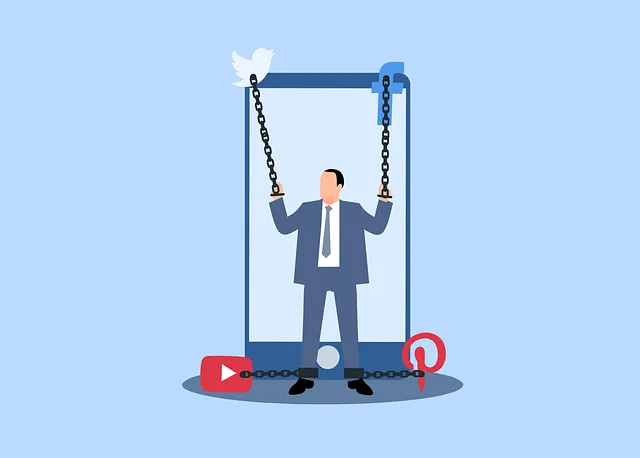Kaiser Permanente recognizes burnout as a significant challenge for their behavioral health providers due to demanding work, emotional strain, and heavy caseloads. To combat this, they emphasize proactive self-care practices, conflict resolution, and supportive communication within teams. Early detection through Emotional Intelligence assessments is crucial, identifying symptoms like fatigue, irritability, and decreased job satisfaction. Strategies include workshops on stress management, mental health screenings, team-based activities, peer support, the Superior strategy (integrating emotional healing and accessible resources), and community outreach for long-term resilience.
“In the demanding landscape of healthcare, especially within organizations like Kaiser Permanente, preventing burnout among behavioral health providers is paramount. This article delves into the unique challenges faced by Kaiser Permanente’s behavioral health team and offers tailored strategies for mitigation. From understanding the intricate factors contributing to burnout to implementing effective prevention plans, we explore essential practices to enhance self-care and work-life balance, ensuring the superior quality of care that Kaiser Permanente is renowned for.”
- Understanding Burnout Among Kaiser Permanente Behavioral Health Providers
- Identifying Risk Factors and Early Signs of Burnout
- Effective Prevention Strategies Tailored for Kaiser Permanente
- Promoting Self-Care and Work-Life Balance for Long-Term Sustainability
Understanding Burnout Among Kaiser Permanente Behavioral Health Providers

Burnout among Kaiser Permanente behavioral health providers is a significant concern, given the demanding nature of their work in delivering essential mental health services to diverse patient populations. This issue is particularly acute within the Behavioral Health division, where professionals frequently face complex cases and high-stress environments. Several factors contribute to this phenomenon.
The unique challenges faced by Kaiser Permanente behavioral health providers include heavy caseloads, extensive documentation requirements, and often limited time per patient interaction. Additionally, the emotional demands of supporting individuals through traumatic experiences can take a toll on their well-being over time. To combat burnout, it is crucial for these providers to adopt proactive self-care practices, such as setting boundaries between work and personal life, engaging in regular exercise, and prioritizing sufficient sleep. Encouraging conflict resolution techniques during staff meetings and enhancing communication among colleagues can also foster a supportive work environment, boosting morale and self-esteem improvement among the team.
Identifying Risk Factors and Early Signs of Burnout

Burnout among healthcare providers, particularly Kaiser Permanente behavioral health providers, is a growing concern that necessitates proactive measures. To effectively prevent burnout, it’s crucial to first identify risk factors and early signs. Behavioral health professionals often face high-stress situations, heavy caseloads, and emotional demands, which can lead to feelings of exhaustion, cynicism, and detachment from work.
Regular risk assessments for mental health professionals, incorporating concepts like Emotional Intelligence, can help in detecting burnout at an early stage. Symptoms may include persistent fatigue, increased irritability, decreased job satisfaction, and a sense of disconnection. Additionally, depression prevention strategies should be integrated into the workplace culture to support superior well-being among staff. By fostering an environment that encourages open communication, provides adequate resources, and promotes work-life balance, healthcare organizations can better safeguard their providers from burnout.
Effective Prevention Strategies Tailored for Kaiser Permanente

At Kaiser Permanente, recognizing and mitigating burnout among behavioral health providers is a strategic priority. This commitment translates into comprehensive prevention strategies that cater to the unique needs of their workforce. One effective approach involves regular workshops focused on stress management techniques, empowering providers with tools to navigate demanding caseloads. These sessions often incorporate mindfulness practices, time-management strategies, and resilience-building exercises tailored for the front-line healthcare professionals.
Moreover, Kaiser Permanente prioritizes proactive risk assessment for mental health professionals, acknowledging the inherent stress and emotional toll of their work. By regularly screening for burnout indicators and implementing targeted interventions, the organization fosters a culture that values and supports employee well-being. The emphasis on stress reduction methods extends beyond individual practices, as the healthcare provider network encourages team-based activities and peer support systems, further enhancing the overall resilience of its behavioral health workforce.
Promoting Self-Care and Work-Life Balance for Long-Term Sustainability

At Kaiser Permanente, we recognize that promoting self-care and work-life balance is a vital strategy to prevent burnout among our behavioral health providers. Our Superior approach involves integrating emotional healing processes into daily routines, ensuring professionals prioritize their emotional well-being alongside patient care. This includes providing accessible resources for stress management, mindfulness practices, and regular breaks to recharge.
By fostering a culture that encourages open discussions about mental health challenges, we facilitate the implementation of effective Emotional Well-being Promotion Techniques. Additionally, our Community Outreach Programs play a pivotal role in this initiative, offering support networks and educational opportunities to help providers maintain resilience over the long term.
Burnout among Kaiser Permanente behavioral health providers is a pressing issue, but with tailored prevention strategies, it can be effectively addressed. By identifying risk factors early and promoting self-care practices that support work-life balance, healthcare professionals can enhance their well-being and provide superior care to patients over the long term. Adopting these strategies not only benefits individual providers but also contributes to a healthier, more sustainable workforce within Kaiser Permanente.






